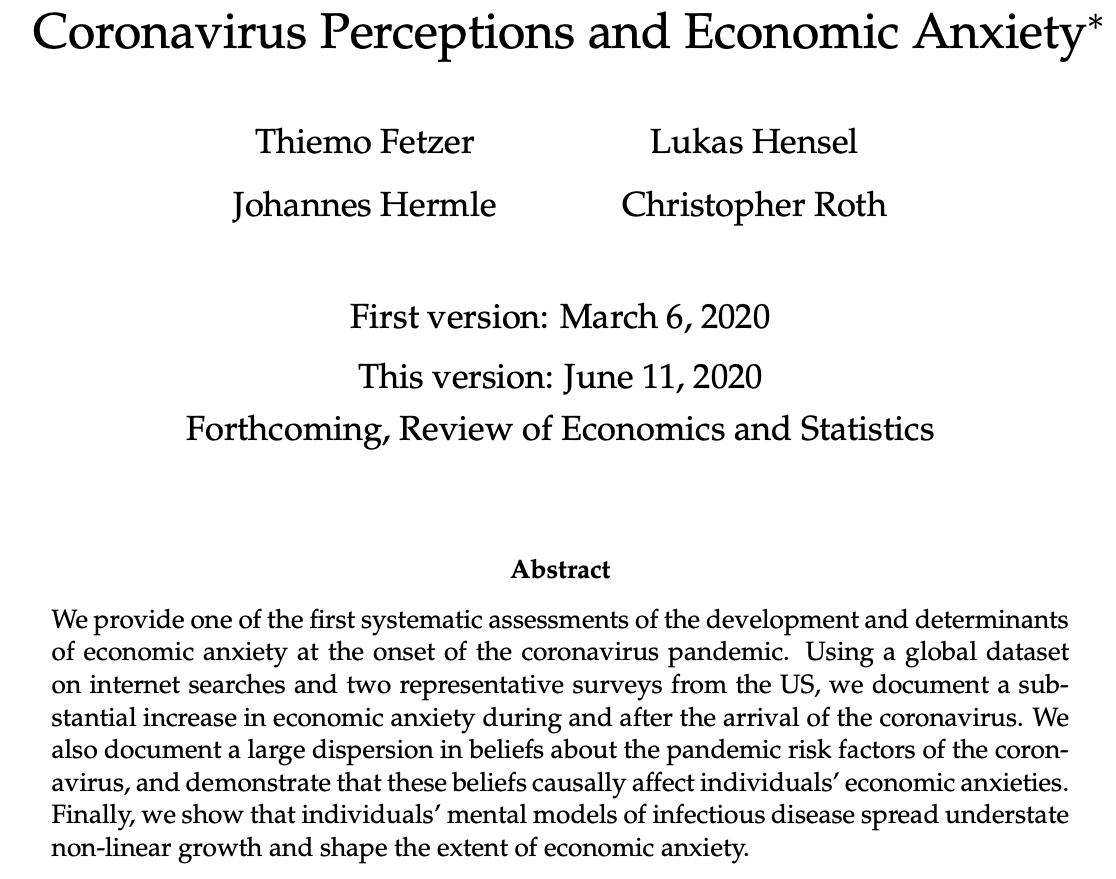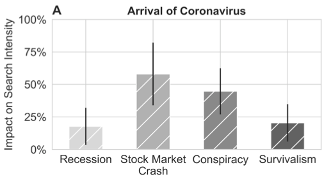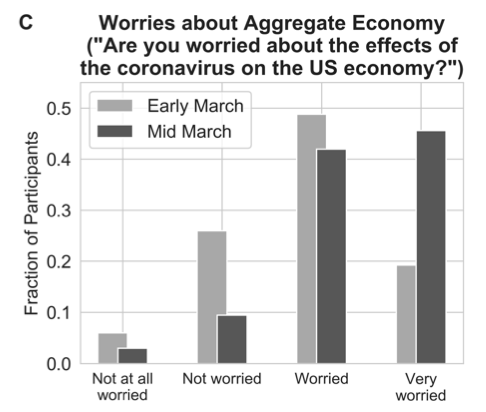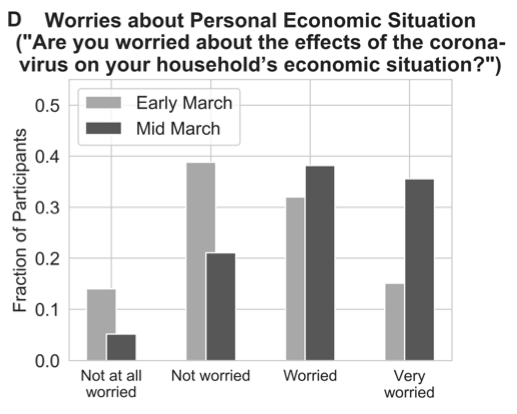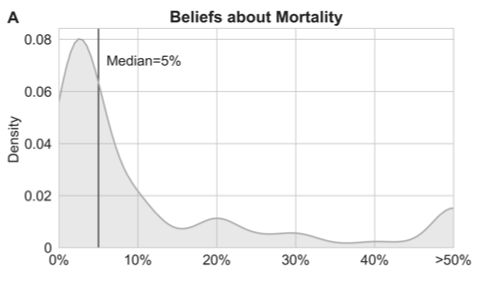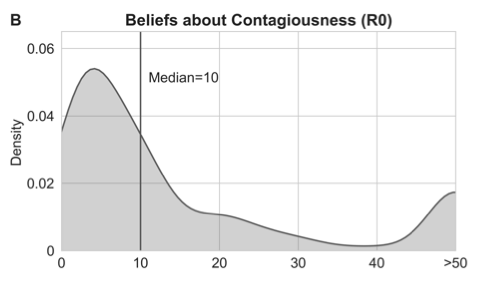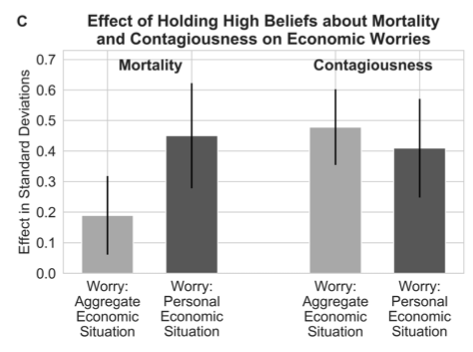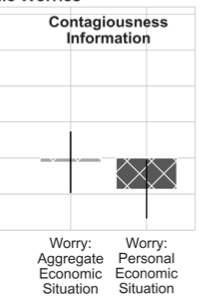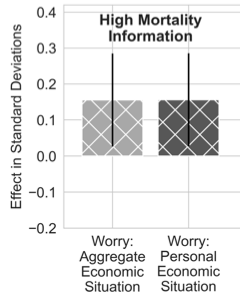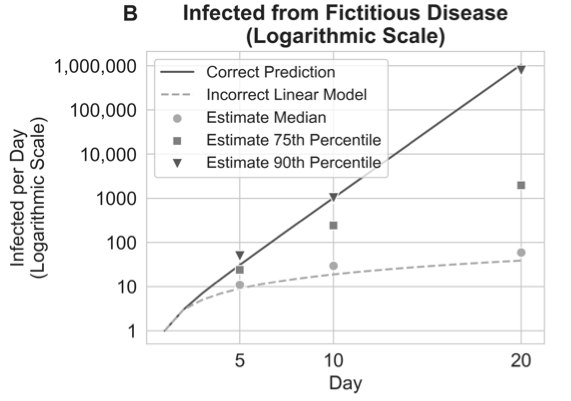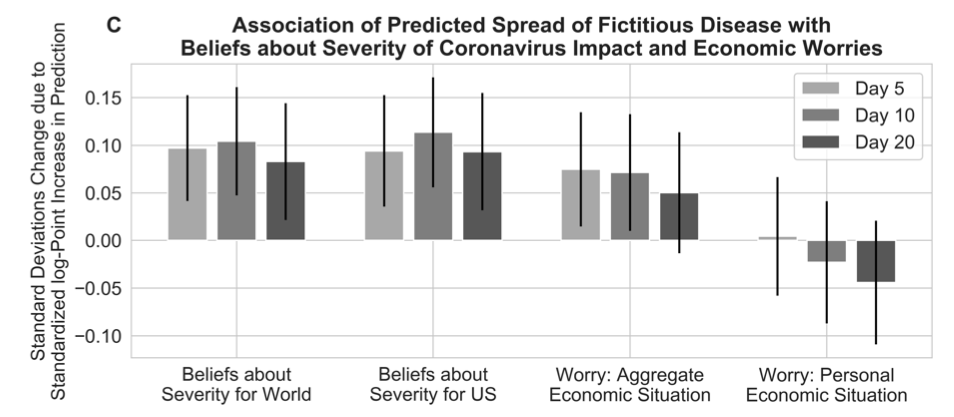My paper “Coronavirus perceptions and Economic Anxiety” (with @cp_roth, @johanneshermle, and @fetzert) is now available @restatjournal ( https://bit.ly/37Ss94v ).">https://bit.ly/37Ss94v&q... A big thank you to the referees and the editor for the quick turnaround. A summary of the key findings below 1/9.
First, we find that the spread of #COVID19 in early 2020 led to economic anxieties. The first case in a country led to a spike in google searchers related to economic anxieties. Such search activities are historically strong predictors of GDP growth. 2/9
We also see a remarkable change in economic worries over 11 days from March 5 to 16 when #COVID19 spread through the US and was declared a global pandemic. For example, the share of respondents who were very worried about the US economy more than doubled over this period. 3/9
Second, we study how perceptions of #COVID19 affect economic anxieties. We find large heterogeneity in beliefs about R0 and the mortality rate. High beliefs about either are strongly correlated with economic worries in our sample. 4/9
Next, we explore what happens when we provide information about these characteristics. Providing information about the best estimate (at the time) of R0 significantly decreased worries about respondents’ personal economic situation. 5/9
We also show that the framing of information influences economic worries. Comparing the mortality rate (as estimated at the time) to the flu (20 as high) instead of SARS (5 times lower) led to a substantial increase in economic worries. 6/9
Finally, we explore the role of mental models using the spread of a fictitious disease 5, 10, and 20 days after inception. We find that the median respondent has an approximate linear model of disease spread despite a clearly posited quasi-exponential growth model. 7/9
However, there also is a minority of people who correctly predict disease spread. Individuals closer to the correct prediction are more worried about the #COVID19 and the economy (but not their own economic situation). 8/9

 Read on Twitter
Read on Twitter